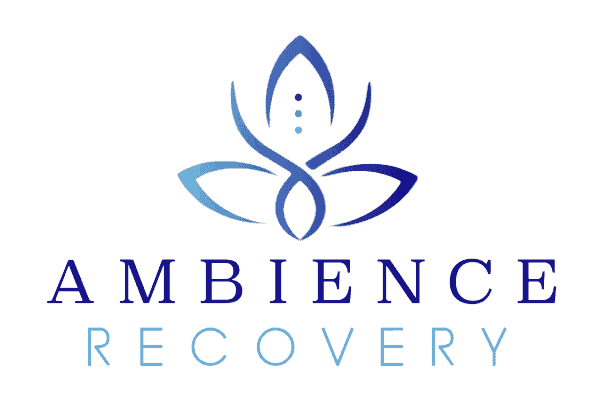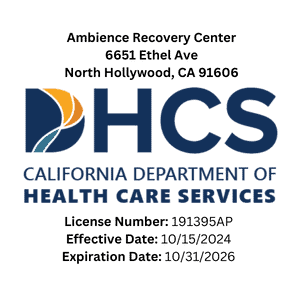It’s shocking to find out that up to 85% of people fall back into old habits within a year after rehab1. This high rate of relapse highlights the tough road ahead for patients. It also shows why it’s crucial to understand the main reasons people struggle in rehab. Knowing these can help individuals overcome the hurdles of addiction treatment.
Research shows that substance abuse can change how the brain works. This affects actions and how the brain connects, making recovery harder2. Also, facing the same problems without making changes to their environment at home can lead to failure in rehab2. It’s key to tackle the mix of biology, your surroundings, and personal actions to truly move past addiction.
Key Takeaways
- Recognition of high relapse rates within a year of treatment is critical1.
- Understanding how altered brain function impedes recovery can inform better support strategies2.
- Environmental triggers post-rehabilitation pose a considerable threat to sustained sobriety2.
- Patient success is highly reliant on individualizing treatment plans2.
- Connecting with recovery communities can provide essential ongoing support2.
- Aftercare, including alumni programs, can offer a network of accountability and support3.
- Access to quality rehabilitation programs, such as those certified by CARF, is pivotal3.
Understanding Rehab Program Challenges
Getting through a rehab program comes with hard challenges. This includes coping with internal and external pressures. High relapse rates are big obstacles, just like with chronic diseases such as diabetes or asthma4. Recognizing these issues helps in creating better treatment plans.
In 2018, many people couldn’t get the substance abuse help they needed. The main reasons were lack of money and not enough insurance5. This shows how important affordable care is. During detox, symptoms like anxiety and mood swings can make relapse more likely. This means careful medical watch is needed6.
Treatments like cognitive behavioral therapy are key for tackling the mind-related parts of addiction4. Race and money issues also affect how well recovery programs work. For example, Blacks and Hispanics often don’t finish their treatment. This is due to problems like not having a job or a stable place to live5.
Addressing addiction fully needs a deeper understanding and strong support4. Adding behavioral therapies helps in dealing with stress and avoiding relapse.
| Challenge | Impact | Statistical Insight |
|---|---|---|
| Access to Care | Financial barriers impede treatment initiation | 21.2 million need treatment; financial barriers a major hurdle5 |
| Relapse Rates | Comparable to chronic diseases | Similar to hypertension, diabetes relapse rates4 |
| Efficacy of Treatment | Varies by ethnicity and economic status | Lower completion rates among minorities due to socioeconomic factors5 |
| Withdrawal Symptoms | Increase risk of relapse during detox | Severe withdrawal symptoms like anxiety, mood swings noted6 |
To overcome rehab challenges, it takes a team effort. There needs to be ongoing care, adaptable treatment plans, and fair treatment chances for everyone. Also, thorough aftercare and professional support are crucial for a true recovery.
Why People Fail in Rehab
Grasping why rehab sometimes doesn’t work is key to fixing how we help people fight addiction. Many treatments don’t meet scientific standards, with only 10 percent of alcohol addiction cases getting proper care7.
In some places, even those with just a high school diploma can counsel addicts7. This gap in professional training can lead to poor treatment outcomes.
Also, 80 percent of U.S. rehab centers don’t offer medicines that help with recovery7. Missing these treatments makes it harder for people to stay sober.
Programs like Alcoholics Anonymous don’t work for everyone7. People need plans made just for them to truly beat addiction. Without this, many fail to stay clean7.
Emotions and mental barriers often block the road to recovery8. Many enter rehab not for themselves, but to please others8. This lack of commitment leads to a high chance of relapse89.
About 85% fall back into old habits soon after trying to quit9. This fact shows the urgent need for continuous, customized support.
To make sobriety last, improving recovery capital is crucial9. A supportive recovery atmosphere can change the rehab experience, leading to better chances of success.
Recognizing the Role of Support Systems in Recovery
It’s key to know how important strong support networks are for a successful recovery. The journey to overcome addiction gets better with a good support circle. This circle should be there during treatment and after it too.
Importance of Aftercare and Ongoing Support
Stopping relapse is easier with good aftercare. Programs like Alcoholics Anonymous and Narcotics Anonymous are vital. They help many stay sober through their 12 Step Programs10. Rehab alumni groups also keep people connected to others in recovery10. Plus, friends and family are super important for support10.
Finding Strength in Recovery Communities and Groups
Being a part of recovery groups offers emotional and practical help. This help is needed to deal with post-rehab challenges. Recovery groups create strong friendships with others who understand your journey. These friendships support and push personal growth, stopping relapse10.
Support in recovery isn’t just about friends and family. Doctors and therapists are also critical to the mix10. They make sure recovery gets the right attention and care, adding to rehab success.
Wrapping up, the success in recovery relies a lot on different kinds of support. Everything from loved ones to professional help makes a strong net. This net helps keep sobriety in reach and boosts overall health.
Instilling Hope for Lasting Sobriety
One key factor in rehab success is building hope in recovery spaces. Studies show that believing in oneself boosts long-term recovery and lowers the chance of falling back into old habits. People with strong beliefs in their power to face difficulties are likely to stay sober for a long time11.
In places like Oxford Houses, people work together to beat addiction. This teamwork not only creates a strong support network but also builds hope. Researchers found that people living there with more hope stayed sober longer. This shows how important hope is in getting better11.
Looking up to heroes can inspire us greatly. Nelson Mandela said, “The greatest glory in living is not in never falling, but in rising every time we fall”. This idea is crucial in rehab, inspiring hope and the belief that we can overcome our struggles12.
| Factor | Impact on Recovery |
|---|---|
| Self-Efficacy | Directly correlates with sustained sobriety and reduces relapse incidents11 |
| Community Support | Enhances individual recovery experiences, providing a robust support network11 |
| Inspirational Quotes | Boosts moral strength and commitment to overcome adversity12 |
Using both internal beliefs and external support can lead to rehab success. This method strengthens personal dedication to staying sober. It also spreads hope throughout the recovery community. By embracing positive vibes and group goals, getting better seems more possible.
Committing to the Journey Beyond Substance Abuse Treatment
The road to lasting recovery from substance abuse is deeply tied to a rehab commitment. It involves understanding addiction’s complexities and the dedication needed to stay sober.
Acknowledging the Risk of Relapse
Acknowledging the risk of relapse is key in battling addiction. About 40-60% of those who recover from substance abuse might relapse13, similar to other chronic diseases. This fact shows the importance of support systems and coping strategies for recovery.
Developing Strong Coping Mechanisms for Triggers
Creating effective coping strategies is crucial to handle triggers without relapsing14. Support from others and staying psychologically strong help keep sobriety in tough times14.
Making it through substance abuse recovery takes a mix of treatments and support. Joining recovery communities, practicing mindfulness, and caring for oneself help combat relapse.
Look at the table below for how long people stay in rehab programs and their success.
| Program Duration | Success Rate |
|---|---|
| 30-day Program | 55%13 |
| 60-day Program | Higher Support Level13 |
| 90-day Program | Highest Success Rate13 |
Longer programs usually have better success rates. This shows that ongoing commitment is crucial for overcoming substance abuse13. Extended care and support are key for lasting recovery.
Personalizing Treatment for Rehab Success
Effective personalized addiction treatment focuses on addressing underlying issues and ensuring integrated care in rehab. By tailoring treatment plans to each person, acknowledging their unique situations, we boost recovery outcomes significantly.
Addressing Individual Circumstances and Underlying Issues
Creating personalized treatment programs is key to tackling the specific issues leading to addiction. The role of neurobiological changes and behavioral impulses in addiction highlights the need for targeted therapy modes15. By understanding how drugs affect the brain’s reward system, therapists can develop more effective interventions15. Thus, overcoming stigma and ensuring access to special facilities are crucial steps in helping more people get the right support15.
Ensuring Comprehensive and Integrated Care
To reduce the high relapse rates, which can be 40-60% for addiction, a full range of care is vital16. This includes detox, inpatient, outpatient, and aftercare stages16. Treating both addiction and mental health issues together has proven to significantly help patients16.
Treatments like Medication-Assisted Treatment (MAT), Cognitive Behavioral Therapy (CBT), and Dialectical Behavior Therapy (DBT) are crucial for recovery16. They support patients in long-term recovery16.
Integrated care in rehab, with a high staff-to-patient ratio and a team of experts, creates a supportive healing environment16. This team includes medical professionals, therapists, dietitians, fitness trainers, and recovery mentors16.
By evolving personalized treatment strategies for addiction, we address both psychological and physical aspects. Emphasizing personal needs and comprehensive care is essential. This approach leads to meaningful and lasting change for those fighting addiction.
Conclusion
The journey to beat addiction and find recovery is tough, filled with obstacles and possible fallbacks. Looking into the rehab process, it’s clear that sometimes, failing is part of learning. Studies show that outside influences can push people off their recovery path. Without strong family support, the chance of going back to old habits increases17. Mental health issues also make recovering harder17.
Choosing to seek help is a big step towards healing. Being with others in rehab can provide much-needed support18. It’s important for care providers to remember that recovery doesn’t stop when treatment ends. Stats reveal over half might use substances again within 90 days after leaving rehab19.
Recovery continues despite setbacks. Aftercare and ongoing support are key to staying on track. Surveys indicate many in the U.S. don’t finish their rehab programs, with many returning for more help. This shows the need for care that fits each person’s situation19. Yet, hope plays a vital role, encouraging those fighting addiction to keep moving towards lasting recovery.
FAQ
Why do some people fail in rehab addiction treatment?
The success of a rehab program can be influenced by various factors. Common reasons include lack of commitment, insufficient support networks, underlying mental health issues, inadequate treatment options, and returning to environments that trigger substance abuse. Understanding these factors can help improve the chances of a successful recovery.
How important is commitment in rehab treatment?
Commitment is crucial in rehab treatment. Without a genuine desire to change and a dedication to following the rehab program, individuals are more likely to experience a relapse. Staying committed helps addicts persist through challenging times and adhere to their treatment plan.
Can mental health issues affect rehab success?
Yes, underlying mental health issues can significantly impact the success of rehab addiction treatment. Conditions such as depression, anxiety, and trauma often co-occur with substance abuse. Without addressing these issues, individuals may struggle to achieve long-term sobriety.
How does a lack of support networks contribute to rehab fails?
A strong support network is essential during and after rehab. Friends, family, and support groups like Alcoholics Anonymous provide emotional and practical support. Without this, individuals are more likely to feel isolated and unable to maintain their sober lifestyle.
Why do some people relapse after completing rehab?
Relapse can occur for several reasons, including returning to environments with high exposure to substance use triggers, lack of ongoing support, and not addressing the root causes of their addiction. Continuous care and avoiding high-risk situations are crucial for maintaining sobriety.
Source Links
- 10 Most Common Reasons For Addiction Relapse: Family Addiction Specialist: Addiction Counselor – https://www.familyaddictionspecialist.com/blog/10-most-common-reasons-for-addiction-relapse
- Top 5 Reasons Drug Rehab Fails – https://www.recoveryconnection.com/top-5-reasons-drug-rehab-fails/
- Drug Rehab Success Rates and Statistics – https://americanaddictioncenters.org/rehab-guide/success-rates-and-statistics
- The complexities of addiction treatment: Why drug rehab doesn’t work – Addiction Treatment in Knoxville, TN – Cornerstone of Recovery – https://cornerstoneofrecovery.com/the-complexities-of-addiction-treatment-why-drug-rehab-doesnt-work/
- Barriers to Addiction Treatment: Why Addicts Don’t Seek Help – https://americanaddictioncenters.org/rehab-guide/treatment-barriers
- Common Challenges in Alcohol Rehab and How to Overcome Them – https://boldhealthinc.com/common-challenges-in-alcohol-rehab-and-how-to-overcome-them/
- AA Dogma and the Trouble with Rehab – https://newrepublic.com/article/112255/why-rehab-fails
- Why Drug Rehab Can Fail – Oasis Runcorn – https://www.oasisrehab.co.uk/blog/recovery-and-rehab/why-drug-rehab-can-fail/
- Addiction Treatment – Going Back to Rehab Does Not Mean You Failed – https://apn.com/resources/going-back-to-rehab-does-not-mean-you-failed/
- Understanding Support Networks in Recovery from Addiction – Recovery First Treatment Center – https://recoveryfirst.org/blog/life-in-recovery/understanding-support-networks-in-recovery-from-addiction/
- Hope and Substance Abuse Recovery: The Impact of Agency and Pathways within an Abstinent Communal-living Setting – https://www.ncbi.nlm.nih.gov/pmc/articles/PMC2916187/
- 10 Recovery Words of Wisdom: Transforming Lives – https://www.clearstepsrecovery.com/addiction-recovery-blog/recovery-words-of-wisdom
- Rehab: Is 30 Days Really the Magic Number? – https://www.hopebridgerecovery.com/blog/rehab-is-30-days-really-the-magic-number
- Psychosocial Life Aspects among Substance Misuse Clients who are at Rehabilitation Phase: A Narrative Review – https://www.ncbi.nlm.nih.gov/pmc/articles/PMC9907330/
- Focus: Personalized Medicine: Precision in Addiction Care: Does It Make a Difference? – https://www.ncbi.nlm.nih.gov/pmc/articles/PMC4654192/
- Demystifying the Truth about Alcohol and Drug Rehab Success Rates – https://www.therecoveryvillage.com/treatment-program/drug-rehab-success-rates/
- Why Does Rehab Keep Failing for Some People? – Genesis House – https://genesishouse.net/blog/why-does-rehab-keep-failing-for-some-people/
- All the Ways I Failed at Rehab, and What Finally Worked – https://www.vice.com/en/article/all-the-ways-i-failed-at-rehab-and-what-finally-worked/
- How Many Recovery Attempts Does it Take to Successfully Resolve an Alcohol or Drug Problem? Estimates and Correlates From a National Study of Recovering U.S. Adults – https://www.ncbi.nlm.nih.gov/pmc/articles/PMC6602820/
Katie is a Licensed Clinical Social Worker who has worked as a primary therapist, supervisor, and now clinical director for SUD/MH treatment centers for the past 12 years. Katie is trained in Brainspotting, EMDR, Internal Family Systems and Dialectical Behavior Therapy and is passionate about treating substance use disorders, trauma and grief.






